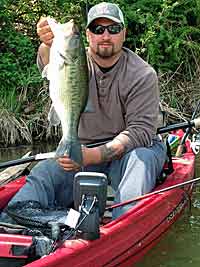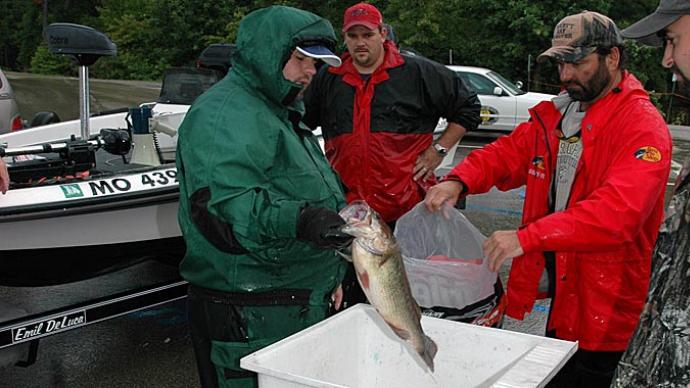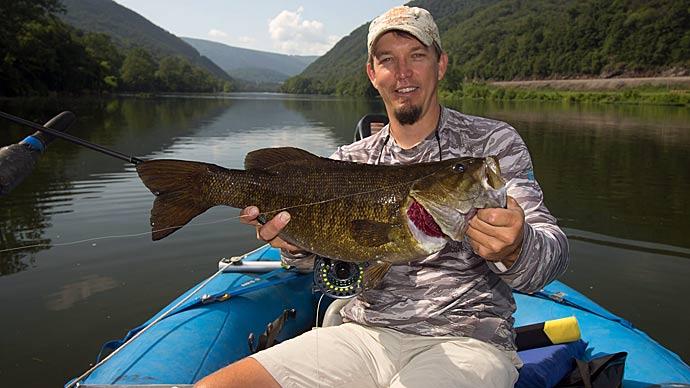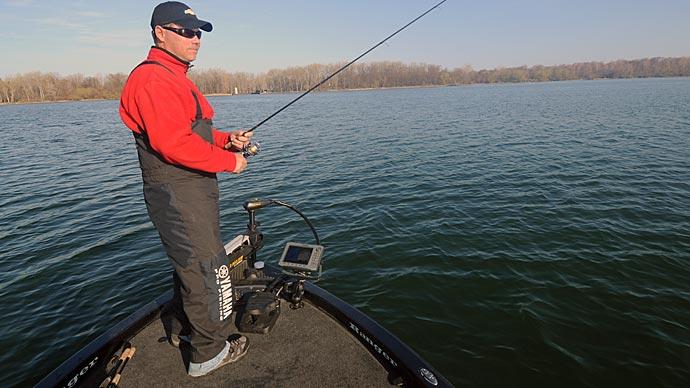
Over the past decade, Spirit Lake-based Outdoor Technologies Group researchers have devoted much time and effort to determining which chemicals and ingredients fish find attractive. Their findings have led to the creation of Berkley Power Bait soft plastics.
But along the way, the research team has also discovered other factors that many anglers might find interesting. In addition to discovering what fish like, the researchers have also discovered some things that fish don't like.
"There are a few everyday things that turn fish off," said chemist John Prochnow, O.T.G.'s Product Development Manager for baits. "These are things you want to avoid if you're trying to catch fish."
Four of the biggest and most common culprits that can keep you from catching fish include:
| Sunscreen: | "There are chemicals in sunscreens which fish perceive as a real negative. We're not saying don't use sunscreen, but be sure and rinse your hands well after you've applied it," said Prochnow. |
| Insect Repellent: | "There is a chemical found in insect repellent known as 'Deet' that can turn fish off in a big way," Prochnow said. "If you want to catch more fish than your buddy, just spray his baits with insect repellents." |
| Fragrances: | "Many of the various fragrances that are put into soaps, for instance, are synthetic. And most synthetic compounds are viewed negatively by fish," according to Prochnow, who worked in the fragrance industry before joining O.T.G. in 1986. |
| Nicotine: | Ever heard the old myth that spitting a little tobacco on your lure makes it more appealing to the fish? Forget it, Prochnow says. "Smoke from cigarettes or spit from chewing tobacco can be a negative factor also." |
Prochnow says that in addition to the items listed above, there are a few other bugaboos to beware of when trying to "get a bite'. For example, many preservatives, alcohol towelettes, and waterless washes should all be treated as suspect because many have surfactants that can turn fish off.
"The bottom line is just to keep your hands clean and as 'odor free' as possible, and in tough fishing situations, it will increase your odds," the chemist says.
Prochnow says it is important for anglers to understand that people and fish live in two different worlds. So what may be a positive for humans may well be a negative for fish.
"For fish, things need to be water soluble for them to relate to it as food. For humans, things need to be air volatile. So what we smell and what fish smell are different things," Prochnow said.
Are the above four factors repulsive enough to keep from biting all the time? "Are they big enough factors to make a difference always? Probably not," Prochnow says. "When fish are aggressive, they'll slam the bait first and ask questions later. So you're dealing with how long they'll hang onto the bait. But when fish are negatively inclined to bite, that's when you have to pay attention to details. That's when you want to ensure you're not presenting any negatives to the fish."
What about the myth that WD-40 is an effective fish attractant? "WD-40 is, at best, a masking agent ... it can possibly cover negative odors on your lures. But what does it do to positive odors or scents? The same thing, it covers them up, too," Prochnow says.
"The reason is that oils or large molecules cannot be detected by a fish's olfactory system (taste buds). Taste buds are like locks and keys. Taste buds are the lock, and the molecules are the key. These chemicals don't allow the fish to send a message to the brain because the lock doesn't fit right into the key. This is because water-soluble ingredients like the Power Bait scents or attractants are so important.
Speaking of the mysterious "power scent', what is the magic key to its success? Prochnow laughs, "I've never had a fish explain it to me other than they treat it like it's food or candy to you and me," he says.




